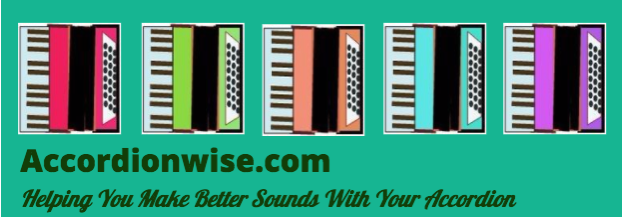I HOPE YOU ENJOY THIS WEBSITE
My name is Alex Govier, a professional musician on accordion, piano and organ for over 50 years.

On this website I am sharing stuff to
- Improve your technique
- Help you get to know your instrument better
- Play more easily and more confidently
- Try new accordion bass methods
- Integrate bass and treble sounds in different ways
- Learn how to make better music
- Gain popularity with general music listeners and not just fellow accordionists.
And yes, ALL CONTENT ON THIS WEBSITE IS FREE.
Simply because I would like more general appreciation of this wonderful instrument.
Because by playing a little more thoughtfully we can reach new audiences and get more recognition.
Find when there is new stuff on this website by joining our new Facebook Community
Here you can also
- interact with this website on Facebook
- Ask questions
- Request more detail on an accordion subject
- Suggest a new subject
- Tell us your own ideas and more.
The Accordionwise Friends link
You can find my personal playing sites on
Maintaining and breaking in your Accordion
Maintenance ideas to optimise your accordion without having to take it apart.
Before you Play
Before I start to play my accordion each day I make it a practice to use the air button and open and close the bellows up to ten times to bring fresh air at room temperature into the inside of the accordion.
I believe this may discourage condensation on the reeds and air the instrument. It seems to make it play more happily and sweetly instantly.
![]()
Preparing a new or neglected instrument
To break in the reeds and get them moving I also play every note both in and out on the bellows (because these are of course different reeds depending on the bellows direction), making sure that all reeds are covered. The master coupler would do this, but it is also nice to cover the individual reeds also or at least the registers where only one or two are occurring.
This is not for the faint hearted or the neighbours for that matter, but I believe it has contributed, along with the superior manufacture, to the tone, responsiveness and amazing volume given by my own Victoria accordion.
Perhaps my imagination, but worth a try.
![]()
Before calling in the repairmen
The interior of your accordion is a delicately handcrafted item and I would not recommend you, unless already expert, to start taking your accordion to bits but sometimes a very simple thing can fix it.
A single reed not working on one note or sounding horrible or out of tune?
This will normally only affect the note in one direction of the bellows. Because a different reed plays in each direction.
And you may of course only notice this when it is used on its own in a particular register. Otherwise the effect may haver been masked by the other reed used with it.
If this is a low reed or a middle reed use the register which contains the one an octave away and play that note repeatedly to pull it into working with it. Or use the solo reed note and go rapidly between bellows in and out on it.
Why this may work. And it Frequently Does!
Very possibly the vibration of the reed is being damped by a large piece of dust or tiny wood-chipping which has lodged in its base. The reed is encouraged to move in sympathetic resonance with the note one octave away. And the obstruction is free to drop out as the reed moves.
![]()
Generally Out of tune or slightly nasty sound
Not strictly a fault.
If in the middle of playing you find your sound suddenly sounding a bit off just check your register tabs, treble or bass depending which part sounds bad.
If a tab is not pressed firmly home it may not be letting the air come through properly, or even sharing the air supply with another tab. This is often enough to spoil the sound so depress the tab firmly and completely.
 Stuck bass notes or chords
Stuck bass notes or chords
This is a real horror problem if these persist in sticking while you play, but there is hope even with a problem with this oh so delicate section of the instrument.
Dont even think of trying to fix it inside the case or undoing screws to look at it.
instead look and see which one is sounding and see if there is a button which is lower than the others and carefully try to prise it up between your fingers. It is difficult to get in there and you need thin fingers to get anywhere near.
You will also notice if the accordion is of any size at all that there is more than one note stuck down, so if one does not respond gradually releasing itself (and it will be very gradual probably) try that one as well, maybe simultaneously. As well as trying to lift it a slight finger tap may help.
I actually had a chord button which had seemed to be stuck down and some work on some individual bass notes which seemed to be connected, because they moved slightly when I worked on the chord button, and lifted and tapped those too and phew SUCCESS! And a perfect accordion since.
If you cannot manage to lift the button or buttons you may find that tapping on a lot of the other buttons will create a vibration encouraging the problem ones to release. This will not happen instantly but can work. Do not play the notes again until the problem buttons are fully released and as high up as the surrounding buttons.
If all this fails you will need your accordion technician however.
![]()
Tuning
Tuning an accordion is an incredibly specialised skill which makes piano tuning seem simple by comparison. Part of the tuning of an accordion is concerned with getting the correct amount of detuning for the style of instrument it shall be.
Definitely do not try this at home! Leave it to the experts.







